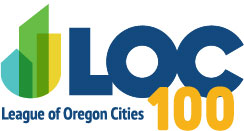LOC News
COVID-19 Housing Needs and Funding Opportunities for Cities to Support Local Rent Assistance Programs
Before the start of the COVID-19 pandemic and economic crisis, too many Oregonians were extremely cost burdened as it relates to housing - meaning they spent more than half of their income on rent, with many just one missed paycheck or medical emergency away from losing their homes.
Governor Brown's executive order placing a 90-day moratorium on any residential evictions for nonpayment of rent was an important first step in keeping Oregonian’s housed; however, tenants are still responsible for their rent payments, and landlords still need rent revenues to operate and maintain their housing units. The Legislature also recently allocated $8.5 million through the Emergency Board to provide needed rent assistance for Oregonians economically impacted by COVID-19. These funds will not be enough to meet current and long-term need and the LOC is hopeful the state will dedicate a significant portion of Oregon’s CARES Act Coronavirus Fund toward housing and utility assistance. The League is also encouraged by recent federal momentum for housing assistance, with the House recently passing $200 billion for housing and homelessness resources in the Heroes Act. The National Low Income Housing Coalition (NLIHC) has researched the need for emergency rental assistance during the COVID-19 and economic crisis at the national level and has estimated state level need.
In anticipation of progress at the state and federal levels, cities and counties will have access to new Community Development Block Grant (CDBG) funds through the CARES Act. The U.S. Department of Housing and Urban Development (HUD) has issued the following three tranches of CARES CDBG funds:
- Oregon’s 13 entitlement communities, 3 counties and 10 cities, received a total of $13.1 million in a first round of CARES CDBG funds directly from HUD. These funds can be used to support a wide range of COVID-19 response efforts, including small business assistance and rent assistance, and many entitlement communities are directing part or all of their allotment to fund rent assistance programs through partnerships with local housing providers. The LOC has been co-hosting a biweekly meeting for entitlement communities and their local housing provider partners to learn more about the new flexibilities for these funds, how to use them for rent assistance, and how they fit within the context of other federal and state housing resources. Participants have also received regular updates from HUD, Oregon Housing and Community Services (OHCS), and NLIHC, with an opportunity for Q&A and discussion.
- HUD allocated $8 million in CARES CDBG for Oregon’s non-entitlement communities, also known as the balance of state. These funds are administered by Business Oregon, which has been working with OHCS to make a portion of these funds available for rent assistance.
- Business Oregon will also receive $10.7 million in CARES CDBG that will be available for both entitlement and non-entitlement communities. As with the second tranche, a portion of these funds will be administered by Business Oregon, in partnership with OHCS, for rent assistance.
Details are still forthcoming from the state on how and when the $8 million non-entitlement and $10.7 million statewide funds will be made available. The LOC will share any updates as they come, and plans to host a web meeting similar to the entitlement community meetings to get cities and counties ready to apply for these funds and support partnerships with local housing providers. Interested cities are encouraged to contact the LOC now. City interest and insight on local needs will help the LOC advocate for these funds to reach Oregonians in need efficiently and equitably.
Contact: Ariel Nelson, Lobbyist - anelson@orcities.org or 541-646-4180
Last Updated 5/22/20

